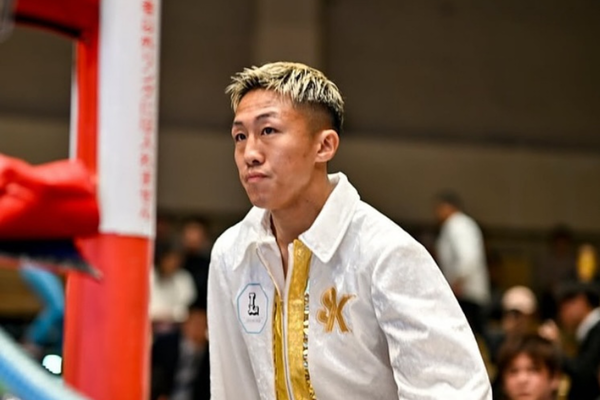

Over the past year and a half, Japanese boxing has been rocked by three tragic deaths. The first of the three came after 23-year-old Kazuki Anaguchi collapsed during a bout on December 26, 2023. He underwent emergency brain surgery but tragically passed away in February 2024. That tragedy was followed by another devastating night in Japanese boxing. On August 2, 2025, at Korakuen Hall in Tokyo, Shigetoshi Kotari and Hiromasa Urakawa both suffered life-threatening brain injuries in separate fights on the same card.
Watch What’s Trending Now!
Both fighters were rushed to the hospital by the Japan Boxing Commission (JBC) and underwent emergency surgery for acute subdural hematomas. Kotari — who fought a 12-round draw with Yamato Hata for the OPBF junior-lightweight title on August 2 — collapsed shortly after the contest; he died on 8 August 2025 after emergency surgery. Urakawa, who was knocked out by Yoji Saito on the same card, underwent a craniotomy and died on 9 August 2025. In response, the JBC and other regional authorities announced immediate measures, including a reduction of OPBF and WBO Asia-Pacific title bouts held in Japan from 12 rounds to 10, and plans for an emergency meeting to examine weight-cutting, medical cover and ring-side protocols.
Former WBO junior welterweight champion and current ProBox TV panelist Chris Algieri has shared ideas drawn from his own experience and discussions with other experts following the August 2 tragedy. While appearing on a segment on BoxingScene’s YouTube channel recently, the 41-year-old claimed, “Number one… They spar very hard over in Japan… They’re also just willing to be warriors.” Although fighters in the US also spar hard, Algieri suggests “there’s a sense of pride” among Japanese boxers, which Algieri claims is also present in “the Mexican boxing culture.”
ADVERTISEMENT

Imago
Source: Instagram
“There’s a pride where you don’t take a step backwards,” he added. “If you get hit, you come back harder.” The panelist highlighted two-weight undisputed champion Naoya Inoue and his fighting style, especially Inoue’s ability to get back in the game quickly after a knockdown. “That’s their culture. So, I think part of it is the training culture,” he added. He also alleged that fighters are using 14-ounce gloves during sparring, bigger than competition, but smaller in terms of the available options to maintain safety.
In addition, Algieri also doubts that Japanese boxers wear headgear that features a bar for added protection. “In Japan, I don’t see those guys wearing bar heads, and then they’re wearing 14 gloves,” he said. The former WBO junior welterweight champion also alleged that Japanese fighters are often required to train and spar at their contracted fight weight, preventing them from rehydrating back to their natural weight. “They’re probably keeping their guys on weight much longer than we see western fighters,” he said.
ADVERTISEMENT
Branding the practice “old school,” Algieri added during the interview, “It’s very dangerous because you’re whittling guys down, keeping them in almost a dehydrated state.” He warned that such low levels of hydration can have a direct effect on the boxer’s “cerebrospinal fluid,” resulting in brain injuries. In the meantime, the Japanese Boxing Commission is ready to take action.
ADVERTISEMENT
Japanese Boxing Commission holds emergency meeting
After the deaths of Kotari and Urakawa, the JBC convened an emergency meeting on August 12, 2025, with the Japan Professional Boxing Association and gym owners. Officials agreed to immediate administrative steps — urine tests to detect extreme dehydration, stricter rules on weight loss, improved medical cover at bouts, and the round reduction for OPBF and WBO Asia-Pacific title fights held in Japan from 12 to 10. They also announced the setup of a committee to investigate the August 2 event. “We are acutely aware of our responsibility as the manager of the sport,” JBC secretary-general Tsuyoshi Yasukochi said. “We will take whatever measures we can.”
View this post on Instagram
Much like Algieri, Asahi Shimbun, a Japanese Newspaper, highlights the dangers of rapid weight-cutting. “Dehydration makes the brain more susceptible to bleeding.” The JBC plans to discuss weight loss and pre-bout conditioning with gym officials. However, only time will reveal what exactly gets done to reduce such incidents from happening again.
ADVERTISEMENT
The whole world seems to have been shaken by the passing of Shigetoshi Kotari and Hiromasa Urakawa. While their tragedy could not be prevented, hopefully, their deaths would inspire even better precautions and practices in Japan. Do you agree with Algieri’s claims?
ADVERTISEMENT
ADVERTISEMENT
ADVERTISEMENT